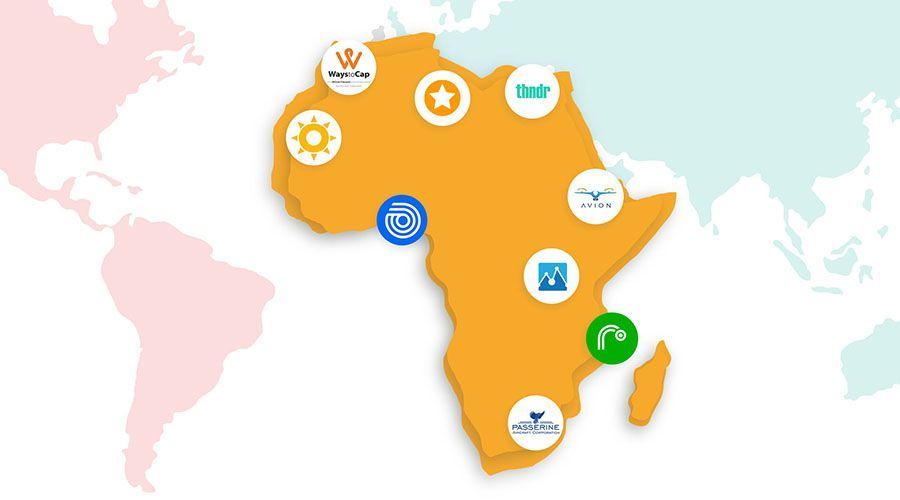These three trends will influence mobile apps in Africa in 2022
Daniel Junowicz, Managing Director of LATAM & Africa at AppsFlyer, explores the key trends of mobile apps in Africa in 2022.

Editor's Note: Managing Director of LATAM & Africa at AppsFlyer, Daniel Junowicz, explores the key trends that will influence mobile apps in Africa in 2022.
Over 615 million people in Sub-Saharan Africa (SSA) will subscribe to mobile services by 2025, that’s equivalent to 50% of the region’s population, according to the Mobile Economy Report.
In 2021, the mobile industry in the SSA showed an incredible resilience against the impacts of COVID-19 and experienced high growth. Digital solutions have provided instrumental support for communities and businesses, boosting their transition into adopting a mobile-first approach to tackle most of the daily challenges across the continent, with fintech applications dominating this surge.
As economies recover and restrictions ease, mobile technology will be even more integral to how people live and how businesses operate, these three trends will shape the future of African mobile technology:
- Increase in investment into mobile applications
- The growth of mobile commerce will drive customer experience and brand loyalty
- Fintech and social super apps will become more common
Let's each of these key trends that will shape Africa's mobile app in 2022 and beyond.
1. Investment into mobile applications will increase
A previous report launched by AppsFlyer and Google revealed a booming African mobile app market, propelled by a growing fintech space, prevalence of 'super apps', and the COVID-19 pandemic amongst other factors.
Having analysed over 6,000 apps and two billion installs across South Africa, Nigeria, and Kenya, between Q1 2020 and Q1 2021, the report found that the African mobile app market showed strong growth, with overall installs increasing by 41%. Nigeria showed the highest growth with a 43% uplift, followed by 37% in South Africa, and 29% in Kenya.
Africa’s opportunity to transform itself into a digitally focused continent has been boosted by the digitalisation demands of the global pandemic. The momentum with which many companies, notably in the retail and finance industries, have carried on their digital transformation journeys shows no signs of slowing in 2022. With Africa being hampered on the road to recovery from the pandemic by low vaccine rates, businesses will increasingly look to capitalise on a growing digitally conscious audience.
According to Briter Bridges, African startups raised $4.65 billion in disclosed funding last year, with 62% flowing towards fintech companies. Increasing web and in-person traffic towards mobile experiences will be a primary focus for traditional businesses as they expand their investment into mobile applications and mobile app marketing which is likely to account for more than half of the overall marketing budget.
2. The growth of mobile commerce will drive customer experience and brand loyalty
Industries like mobile commerce will continue to experience exponential growth going in 2022 in Africa as more consumers, especially previously non-tech savvy shoppers, become increasingly familiar with shopping online via mobile applications. Social commerce is predicted to take up more space in the overall mobile marketing space, therefore, developing an engaging user experience to enhance brand loyalty is highly important.
The growth that e-commerce apps experienced last year in Africa is showing no signs of slowing down. According to AppsFlyer’s State of eCommerce app marketing report, the African mobile app market continues to show strong growth with more people accessing goods and services online than ever before, with an increase of 55% on Android and 32% on iOS in 2021, and consumer spend climbing 55% overall.
The more consumers become familiar with mobile applications, the more they will respond to innovation and improvements in the user experience (UX), which in turn will drive a positive engagement with the brand. Enhancing the UX will be a critical focus for app developers and marketers as they pivot their improvements around more impactful copy, eliminating distractions and maximising creative design within the limited space of a mobile screen.
Intense competition for attention should push the market towards innovative mobile applications, which will certainly appeal to consumers and maintain a higher brand loyalty.
3. Fintech and social super apps will become more common
Super apps emerged from China, a country with a huge population, significant consumer purchasing power and underserved industries. China is not so dissimilar to Africa. Apps such as WeChat, a messaging app, quickly expanded into other activities such as shopping, gaming and video sharing. This is a model that various social media companies in the West including Meta are looking to replicate by rolling out more features in each of their apps.
Africa has the potential to be a significant market for super apps, especially fintech. By the end of 2021, there were 548 million registered mobile money accounts in the SSA region, over 150 million of which were active monthly; that’s 43% of the total active mobile money accounts in the world. These apps offer convenience to consumers, as they provide the basic infrastructure needed by the unbanked population and easy access to a wide range of services.
Kenya’s M-Pesa and Nigeria’s Opay have served as good examples in East and West Africa with at least another few emerging from last year, as well as Uber and Bolt’s expansions from car hailing apps into food delivery. So, as we move into 2022 the race to dominate the digital retail and consumer landscape for super apps is on. Expect to see businesses grow and diversify the capabilities of their apps through embedding their suite of features into people’s everyday lives.
This guest post is written by Daniel Junowicz, Managing Director of LATAM & Africa at AppsFlyer, a leading mobile attribution platform. Prior to joining AppsFlyer, Daniel worked in the manufacturing sector in China for over six years.
As AppsFlyer's Managing Director in LATAM & Africa, Daniel brings his knowledge on digital marketing and innovation to provide a holistic view of the mobile landscape across both regions.
Featured image: App Growth Summit






